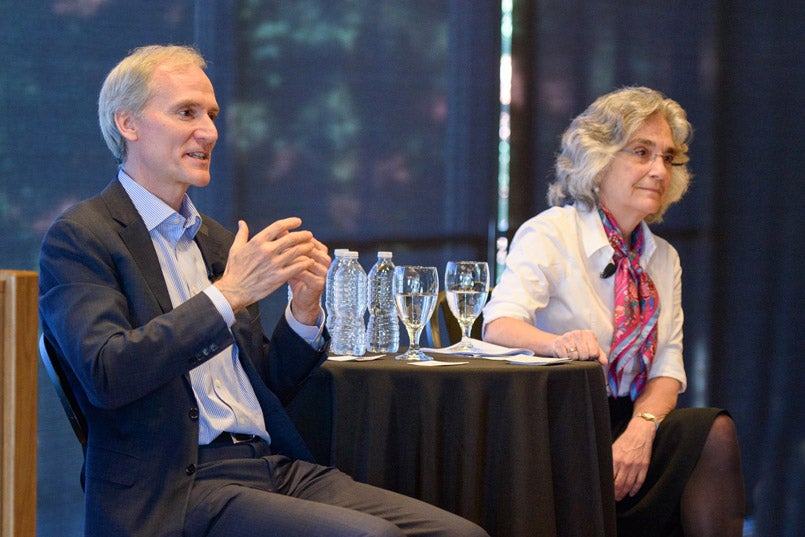October 11, 2018
Reflecting on Tuesday’s White Plaza events
At Stanford we believe that diversity of individual viewpoints and experiences makes us a stronger community. In such a community of diverse, passionate thinkers, conflicts of viewpoint are inevitable. On Tuesday this week, as you may have read, a number of students became involved in a set of altercations on White Plaza. (The issue is currently under review by local law enforcement.)
Without pre-judging those events or the individuals involved, we would like to address the events from a community perspective. It was another instance of the challenges that lie at the intersection of two very important principles in our campus community – the fostering of an inclusive community and the free expression of ideas.
We are planning to invite student groups for further discussion of Tuesday’s events in order to understand the range of concerns and the diverse perspectives on them. But we believe this also presents a poignant moment to revisit our institutional aspirations for engaging with each other respectfully in our community.
We have heard a number of concerns from students about what happened on Tuesday. We have heard concerns about the impact of campus speech on survivors of sexual violence, who must deal with the lifelong impacts of a traumatic incident in their past. We have heard concerns about actions and activities perceived to be seeking more to provoke others than to discuss ideas. We also have heard concerns about the dismissal of certain political viewpoints on our campus, and actions by others that may infringe on the expression of those viewpoints.
These issues come at a time when many in our community are feeling vulnerable, whether because of the polarized political culture in our country, or the recent Supreme Court confirmation hearings and the issues they raised, or other reasons. In these times, it is especially important to reiterate our shared responsibility for creating a community of care and respect for one another, and for the reasoned discussion of ideas that is at the heart of what universities contribute to our society.
Last year, in two blog posts here and here, our president and provost outlined their views on how Stanford can simultaneously advance free expression and inclusion. Here, we would like to amplify on a few points with Tuesday’s events in mind.
First, we should aspire in an academic community to be better than what the law and university policy minimally require of us. The provost articulated this last year when she noted that “free expression and an inclusive culture will require us all to embrace a higher level of awareness and engagement with others.”
“In our community,” she wrote, “we aspire to bring to our interactions a fundamental respect for others – the other members of our community with different backgrounds and points of view, from whom we usually have something to learn. The great opportunity of being at a place like Stanford is to have our horizons broadened, our insights deepened, our discoveries enriched through interaction with those who bring different histories and different perspectives. We can only do this if we engage with each other with interest and respect.”
We believe that spirit should continue to guide us, and that it should inform the kinds of interactions we seek to have with each other as we reflect on this week’s events.
As well, as the president and provost also wrote last year, when we are confronted with challenging speech, we have choices in how to respond. Their blog post specifically addressed the choices we have when outside speakers come to campus, but the same kinds of options apply when we are challenged by speech within our own community.
We have the option to listen to those with whom we disagree, to ask questions, to present our own ideas. We have the option to create a separate event or space to articulate our perspective or to initiate a different dialogue. We have the option to not engage – to walk away. Our choices will be informed by the circumstances. And the choices we make will help shape the overall quality and character of discourse in our community.
Again, we believe the issues around Tuesday’s events deserve more conversation, and we will be inviting students and student groups to help define how best to engage in those conversations. We welcome your feedback and further thoughts. We continue to have great confidence in our community and our ability, together, to learn and grow as we work through the issues that challenge us.
